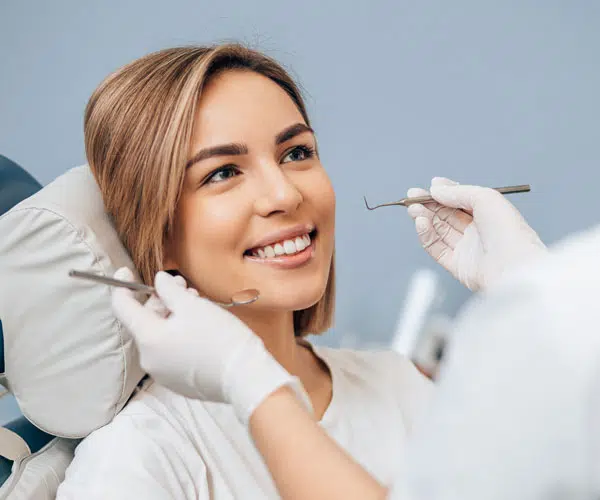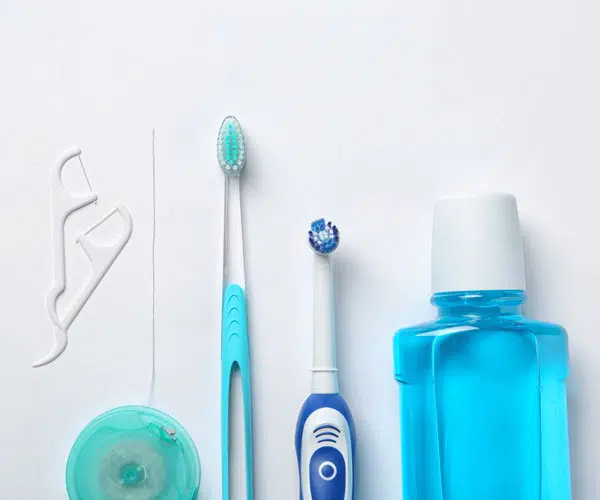
Oral Hygiene In Bellevue, WA
Dental hygiene is a part of dental care, which implies that we keep our oral cavity as clean as possible without cavities or gum disease issues. A daily oral health routine is necessary for our oral care. We tend to think that we know everything about hygiene and caring for our teeth or gums, but how much do we actually know? Unfortunately, hygiene is usually taken for granted or neglected.
However, it is not just about care of the teeth or keeping your gums healthy. We can easily say good oral hygiene is the first step toward good health of the entire body. Please scroll down to learn more about proper oral hygiene and its importance.
Why Oral Hygiene is Important?
Bad oral hygiene may contribute to various health issues and conditions. One of them is endocarditis, an infection of the inner lining of the heart chambers or valves.
Like any other part of the body, the human mouth is full of bacteria. Some bacteria are harmless, and others are not. If we don’t take care of our oral health, some of these bacteria can cause diseases such as tooth infection, gum disease such as gingivitis, and digestive and respiratory tract issues because our mouth is an entry point to our digestive and respiratory tract. If you’ve ever had tooth infection pain, then you already understand why oral hygiene is necessary.
Inadequate oral hygiene is also associated with these health concerns:
- Cardiovascular disease
- Diabetic complications
- Cancer
- Pregnancy and birth complications
- Pneumonia
- Osteoporosis
How does treatment work for Oral Hygiene?
In General Dentistry, Oral hygiene care includes professional teeth cleaning called scaling and polishing. This is the best way to keep our pearly whites free from plaque and tartar. Also, your dentist plays an important role in protecting the gums from disease.
Periodontitis oral hygiene can prevent consequences of this serious gum disease, such as tooth loss. The exact treatment depends on the patient, their oral health, and their specific needs. For example, some people need cleaning only while others need to treat tooth infections.
Here are some Tips to Floss
Flossing is an effective way to remove plaque and leftover food and thereby support good oral health. Start with the 18’’ long floss. Lightly wrap most of the floss around the middle finger of both hands. To clean the upper area, gently insert the floss between the teeth using a back and forth motion. Then, bring the floss to the gum line and curve it into the C-shape against the teeth. Slide the floss into the space between the gum and the tooth & move the floss up and down on the side of the tooth.
Do not force the floss
Be careful not to cut the gum while flossing. As the floss becomes soiled, move the floss with the finger for a clean surface. Clean the bottom teeth & Rinse with fluoridated water or mouthwash afterward to prevent plaque formation.
Tips To Brush Your Teeth
Ideally, you should use a soft-bristled or medium-bristled brush. We need to position the brush at 45 degrees at the point where our teeth and gums meet. Using a small, gentle stroke, move the brush in a circular motion several times, brushing the tooth’s surface.
Make sure not to use too much pressure while brushing to avoid discomfort. Take the same steps to brush outside and the back of the tooth. Don’t forget to gently brush the gum line around the teeth and your tongue.
After brushing, we need to rinse using mouthwash vigorously to remove dirt and plaque.
Caring for Sensitive Teeth
A regular hygiene routine can be quite painful and uncomfortable in people with tooth sensitivity. Oral health is crucial, and we can’t neglect it due to these problems.
Sensitivity usually occurs due to worn tooth enamel or exposed tooth roots. Other factors can also cause discomfort and sensitivity.
These include a cavity, chipped or cracked tooth, gum disease, and worn filling. Since sensitive teeth can be quite bothersome and uncomfortable, you may want to see the dentist. The best approach may vary from one patient to another, but it usually includes desensitizing toothpaste, surgical gum graft, fluoride, and root canal.
As per Bellevue dentist Dr. Uparika Sharma, to prevent or reduce the risk of sensitive teeth, you need to brush your teeth twice a day using a suitable toothbrush. Don’t forget to brush your tongue as well! It would help if you were proactive about your oral health.
Consider wearing a mouth guard if you tend to grind your teeth. Additionally, use a straw when drinking acidic drinks because they can remove small amounts of tooth enamel. Or drink water to balance the acid levels in the mouth after eating or drinking acidic foods or beverages.
Choosing Oral Hygiene Products
With so many different oral care products in the market, it can sometimes be difficult to choose what is best for your teeth and prevent gum disease. For most people, an automatic or electronic brush is the best way to clean their teeth and remove plaque.
Choose a toothbrush that has a rubber on the back. Brushing and flossing is the way to practice good oral hygiene and keep good oral health.
Besides a high-quality toothbrush, you may want to consider using oral irrigators that rinse the mouth thoroughly. Studies show that fluoride toothpaste and a mouth rinse are the best in the market and can reduce tooth decay.

Professional Dental Cleaning
For proper oral health, remember to brush and floss daily. Professional cleaning by dental care team will remove all the calculus (tartar) from places where toothbrushes and floss can’t reach.
This will help you keep your smile for a lifetime and prevent any dental disease. In other words, professional oral hygiene services can take your oral health to a new level and improve your quality of life through a confidence boost.
Call today to schedule a consultation! (425) 998-8109
Call today to schedule a consultation!
(425) 998-8109
Frequently Asked Questions
What are the basics of dental care in Bellevue?
The basics of oral hygiene are to brush at least twice a day and use dental floss. You should also use a quality mouthwash and go to your Dental clinic appointments regularly.
How often to see the dentist?
Ideally, it would help if you visited the dentist twice a year, i.e., once every six months.
People with healthy teeth and gums can have their appointments once a year. Persons with dental issues may benefit from regular dental appointments every three to four months. Adhere to the dentist’s recommendations regarding dental care and don’t avoid appointments.
What constitutes good oral hygiene?
Good oral hygiene consists of brushing and flossing your teeth, gums, and tongue daily and using adequate fluoride products.
Preventative care for excellent oral health includes eating a well-balanced diet and limiting snacks between meals to prevent cavities. That means you need to avoid sugar-laden foods and drinks. Focus on foods rich in vitamins, minerals and less acidic.
Acidic foods are not suitable for tooth surfaces.
Always remember proactive care for your pearly whites can also prevent complications with health problems outlined above in the article linked to your oral health.
What are the signs of poor oral hygiene?
Signs of poor oral hygiene are red or tender gums, tooth decay, bleeding while brushing, gums that start to pull away from your teeth, sensitivity to cold or hot, constantly having a bad breath or painful chewing. It is never too late to get much-needed treatment for the good health of your oral cavity. You can contact your dentist today.
What are the most common oral health problems?
The most common oral health problem is toothache. Then there are cavities, chipped or cracked teeth, the sensitivity of gums, or stained teeth. Gum diseases such as gingivitis and periodontal disease are also common. By adopting healthy habits such as flossing and brushing, you can protect pearly whites and have a beautiful smile.
Reviewed By

Dr. Uparika Sharma
Doctor of Dental Surgery (D.D.S.)
Dr. Uparika Sharma brings over five years of hands-on experience in general and cosmetic dentistry. She leads patient care at Bellevue Azalea Dentistry, where she is known for her gentle approach and personalized treatment plans. Dr. Sharma earned her Doctor of Dental Surgery (D.D.S.) degree from the University of Washington and is an active member of the American Dental Association, reflecting her commitment to continued education and high standards of care.
